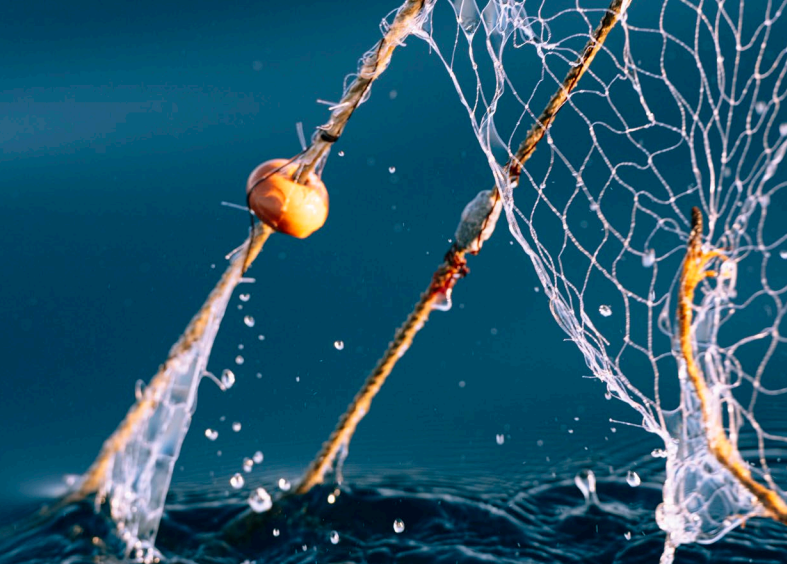BirdLife Europe and Central Asia, CFFA and WWF release a joint paper with recommendations to harmonize the conditions for the embarkment of scientific observers on board EU vessels and ask that data collection include more specifications on the biological information required, including documentation of bycaught species
End of August, an EU study looked at the provisions for scientific observers in the protocols for mixed Sustainable Fisheries Partnership Agreements (SFPAs) in West Africa (Morocco, Mauritania, Senegal and Guinea-Bissau).
The study highlighted some positive results. First and foremost, information from observers, at large, can be considered sufficient to meet the Data Collection Framework (DCF) requirements and in general, with the Fishery Committee for the Eastern Central Atlantic (CECAF) requirements. And secondly, observer manuals for the four fleets with EU observers’ programs (shrimp, black hake, cephalopod-finfish and pelagic trawlers) have now been produced to provide clear sampling protocols, and have been harmonized between the EU and Coastal State for each fishery. This will enable the collection of comparable data to contribute effectively to the improvement of stock assessments in CECAF and therefore to obtain the best scientific advice from SFPAs Joint Scientific Committees and CECAF.
However, shortcomings have been identified, such as the reluctance of some EU ship owners to host observers on board their vessels and the lack of specifications on biological information for observers on board demersal and pelagic fleets.
In spite of existing legal obligations for EU vessels to take scientific observers, some vessel owners are reluctant to take observers on board due, in their view, to the limited space on the vessel. The problem seems to be almost exclusively the embarkment of observers on board trawlers flagged in Lithuania and Latvia fishing for small pelagics in Mauritanian and Moroccan waters. The study describes this as one of the most significant issues to solve so that coverage and effectiveness of the observer programs are improved on board EU vessels in West Africa.
Secondly, although there are obligations to develop programs of scientific observers onboard EU demersal and pelagic fleets operating in West African fishing grounds through mixed SFPAs (established in the DCF and SFPA Protocols), there are no clear specifications on the biological information required in the SFPA Protocols.
Our proposals to improve scientific observer coverage and data collection in mixed SFPAs
1. Enforce scientific observation on board of EU distant vessels
The EU should condition access to fisheries to the fleet’s compliance with data collection and reporting requirements under the EU Data Collection Regulation (2017/1004). For this, the EU should make scientific observations (either with observers or REM) mandatory on all EU vessels outside European waters. In practice, the renewal of fishing licence for vessels fishing under a mixed SFPA should be conditioned to the embarkment of an observer. This recommendation has been made repeatedly by the Joint Scientific Committee to all SFPAs’ joint committees for years. It is time for the EU to enforce this recommendation.
More consistency in the mixed SFPAs is needed regarding the embarkment of observers. In the existing mixed SFPAs, the conditions for embarking observers are very different. Mauritania, for example, by far the largest SFPA in terms of access and sectoral support, seems to be the one with the weakest conditions (The latest Mauritania SFPA protocol stipulates that for each fishing category, at least two vessels per year have to embark a scientific observer from Mauritania). The EU should make sure that the conditions are strong and harmonized in all mixed SFPAs.
2. Data collection
Data collection should include data on by-catch (including non-target fish species and sensitive species) and should be accessible to the public. For this, SFPAs should contain clear specifications on the biological information required, which should include information on bycatch species, including non-target fish species and sensitive species like seabirds, megafauna and sea turtles. The successful collection of data from these observations should be done through additional specific sections in electronic logbooks added to enable observers and fishers to report, on the basis of a set of criteria, the type of species being bycaught and the specific conditions in which the incident happened.
EU technical and financial support should be provided for the establishment/reinforcement of observer programmes capacity, acquisition of appropriate materials, and the training of local observers in the coastal states, including those that go on board EU vessels, so that they are able to accurately collect data on bycatch.
This data should be analysed by the SFPAs Joint Scientific Committees and feed into the Joint Committee discussions on the implementation of the agreement. It should be made available to the public and systematically shared with the coastal states stakeholders in order to facilitate open discussions on the impacts EU distant fishing activities may have on the marine environment.

